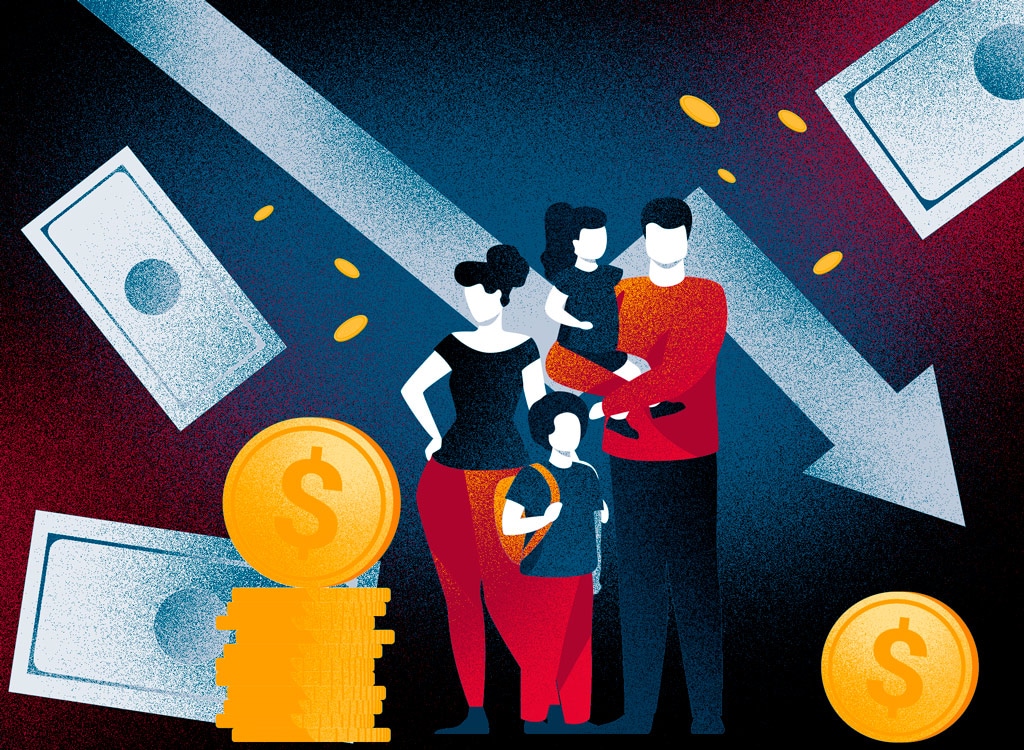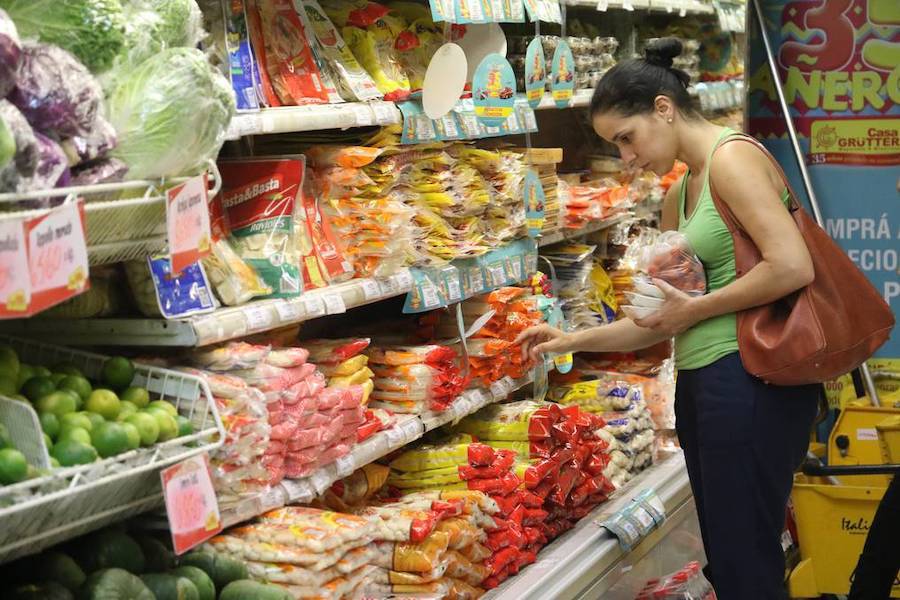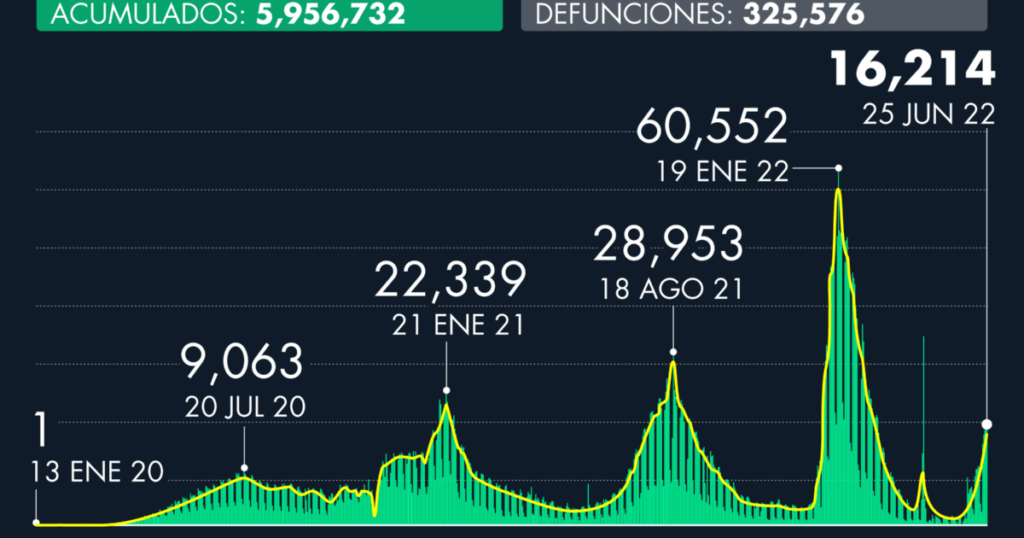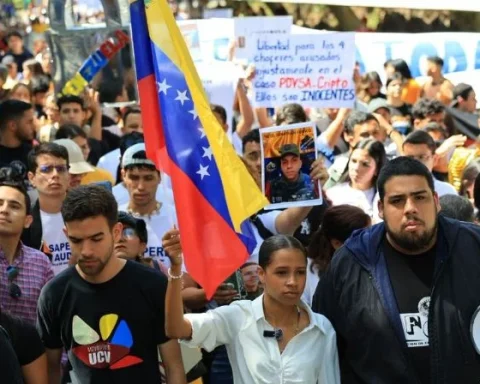Auxiliadora Ramos has temporary jobs whenever she can. At the same time, she takes care of her two daughters, ten and six years old. This 36-year-old woman, originally from a rural community in Diriamba, in the department of Carazo, spends most of her time cleaning houses, washing clothes, and ironing. She also sells nacatamales and soups on the weekends. But every time she feels that “money is getting out of hand”.
“I am practically a single mother, because the father of my two daughters is not in charge of anything, and only when he feels like it does he give a few cents,” she laments. She explains that with everything she does, she manages to collect about 6,000 córdobas a month to cover food expenses, payment of basic services, school expenses for her daughters, and an emergency.
“Every day everything is more expensive” complains this woman, who affirms that she has verified how “from one day to the next, many things go up in price”.
“You can go to the market with a bag full of money, but you return with practically empty bags of food,” insists Ramos.
The price of the basic basket —made up of 53 products— has increased 802.53 cordobas from January to May of this year; going from 16,529.99 córdobas, in January, to 17,332.52 córdobas until last May, according to official data from the National Institute of Development Information (Inide).
The basket made up of 23 food products, 15 expenses and household items; In addition to 15 clothing items, it is calculated for a family of five members: two adults and three minors.
“If there were more people in my house, I wouldn’t even be able to cover food every day,” explains Ramos, for whom “prices always rise, but wages stagnate.”
The 17,332.52 córdobas at which the Nicaraguan basic basket was quoted last May, signify an increase of 2,371.41 córdobas, compared to the 14,957.11 córdobas it cost in May 2021.
“Practically no worker receives a salary increase of more than 1,000 córdobas from one year to the next, so the hit of the increases is received by employees with the same salary,” Ramos estimates.
According to an analysis of CONFIDENTIAL, The cost of the basic basket last April was more than 6,600 córdobas higher than the highest of the ten minimum wages in force in Nicaragua, which is what is paid to workers in construction, financial establishments and insurance. The gap rises to almost 12,500 córdobas, when compared to the lowest of all, which is assigned to the agricultural sector.
“poorer every day”
For “Axel”, a teacher from Granada, who earns a salary of approximately 8,000 cordobas, it is difficult to cover the cost of the basic food basket for a family of six.
“Each month, when we do the house shopping, we realize that most of the products have gone up and we realize that every day we are poorer,” she says.
One of the first savings measures that he applied to save money was to buy everything in the market. “It’s time to look for the cheapest, also in the quality of certain products,” he says.
“Buying meat in a supermarket is a luxury that we cannot afford. You have to look for chicken, and in the neighborhood or market butcher shop, ”she details.
The wife of “Axel” is dedicated to selling products by catalog to help him with family expenses.
“It is not enough for us to buy clothes, or to have a beer. Those are things we almost always avoid,” she notes.
“I worked all my life to starve”
“In a little while one will not even have money to eat,” says “Elvira”, 72, who has lived for 12 years with a pension of just over 4,500 córdobas.
She relates that her children have already formed their own homes, but she lives with a granddaughter who is dedicated to selling used clothing products on the Internet and her daughter who works in a fast food restaurant.
“Between the three of us we managed to survive, but if I didn’t have them, I practically couldn’t afford everything. It is incredible to know that I worked all my life until I retired to now go hungry, because food is what goes up the most every month, ”she explains.
The expert on consumer issues, Rubén Ernesto Arriola, indicated in a recent interview with the program This weekwhich from the Consumer Manager Consultancy sent a letter to the Ministry of Industry, Development and Commerce (Mific), in which they requested to stop taxing the basic basket.
“With the tax reform, many items were taxed, including food and cleaning products, which caused their price to rise automatically, hitting the purchasing power of consumers,” he stressed.
The tax reform approved by the Daniel Ortega regime entered into force in March 2019, almost a year after the social protests, and at that time the basic basket was quoted at 13,414.69 córdobas, some 3,917.83 córdobas less than the value it reached in last May.
They project more poverty
Carlos Mendieta, a worker in a free zone in Masatepe, lives with his wife and five-year-old son. He says that he finds it difficult to continue affording the raises that he checks every month with the same salary.
Going shopping is a distressing moment, because “rarely does something go down, if anything, it maintains its price.”
“We are avoiding buying things at the sale, because everything is more expensive. But also our diet has changed, now we eat more rice, beans and cheese. Sometimes chicken, sometimes something else, but we always look for the cheapest, ”she says.
Mendieta is constantly afraid because anything can destabilize her economy. He lived through it with the covid-19 pandemic that affected his wife and his mother and involved “many expenses.”
“In Nicaragua we live in a subsistence economy where any unforeseen expense comes to disrupt your finances every fortnight,” he says.
The Economic Commission for Latin America and the Caribbean (ECLAC) lowered the growth forecast for Nicaragua’s gross domestic product (GDP), from the 3.0% it calculated at the beginning of the year, to the 2.5% indicated in its report “Repercussions on Latin America and the Caribbean from the war in Ukraine: how to face this new crisis?”, presented on June 6.
In the case of Nicaragua, it will translate into an increase in total poverty, depending on the behavior of the consumer price index: according to ECLAC calculations, total poverty would grow from the 45.3% observed at the end of 2021, to affect the 46.0% of Nicaraguans —if inflation remains at 8.74% measured at the end of the first quarter— or up to 46.8% of the total population, if it rises another two percentage points in the rest of the year. A scenario that would further raise the cost of living for Auxiliadora, “Axel”, “Elvira” and Carlos, among hundreds of thousands of other Nicaraguans.


















